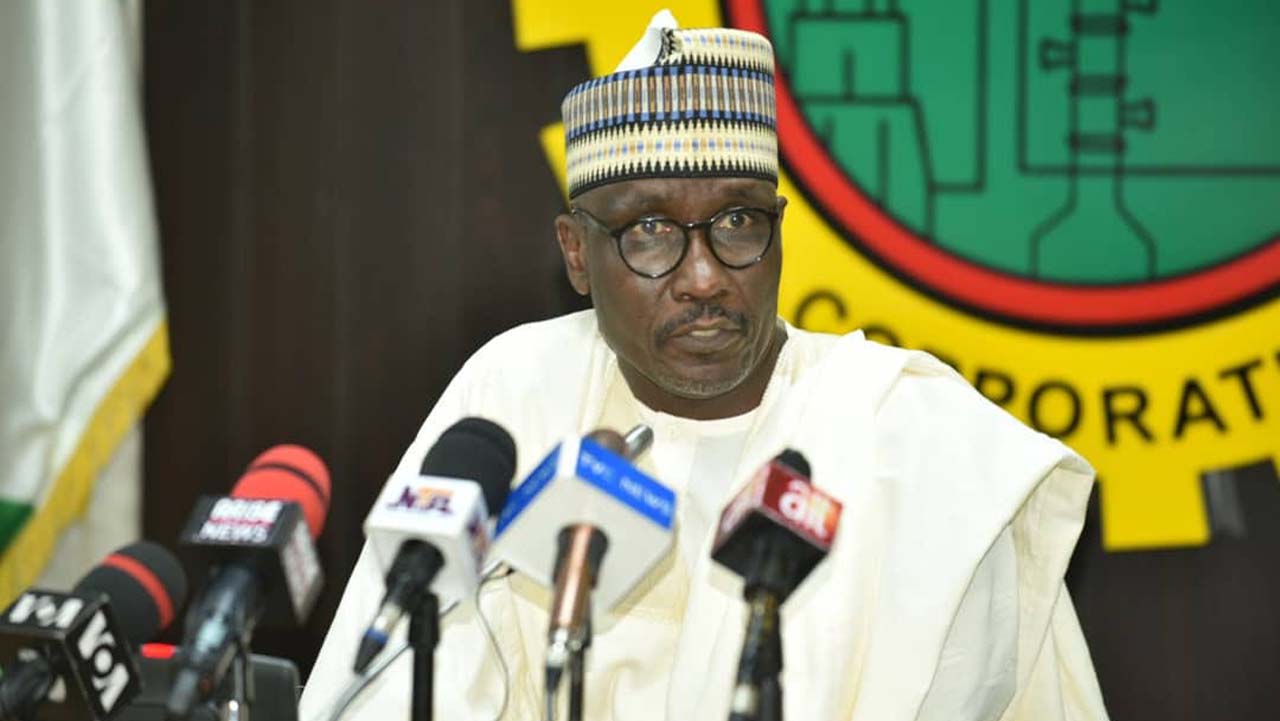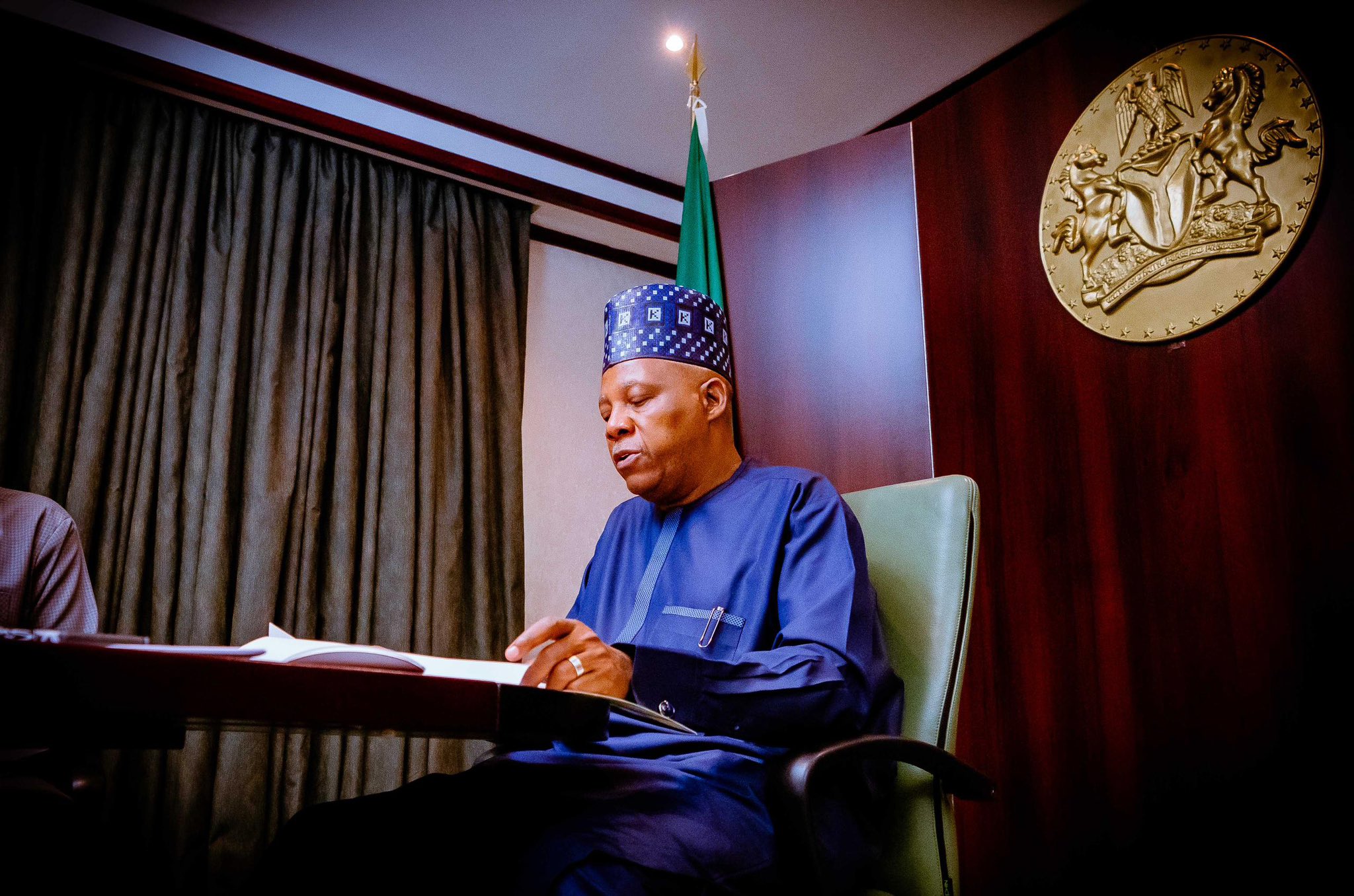• IPMAN: We are in the dark about logistics challenges
• Fares surge 77% in 15 months over petrol hike – SBM
• Shettima craves Nigerians’ patience, understanding
From Waliat Musa (Lagos) and Terhemba Daka (Abuja)
A week after the Federal Government assured that the ongoing petrol scarcity will ease, many filling stations across Lagos and other cities remained shut yesterday with few outlets operated by major marketers opened to motorists.
Long queues were seen at stations operated by Conoil, TotalEnergies and NNPC Retail with almost all the stations operated by independent marketers shut. A few of the stations managed by the independent marketers were dispensing at between N850 and N1,000 per litre compared to N680 per litre sold at stations operated by major marketers.
The Nigerian National Petroleum Company (NNPC) Limited had last Friday, assured consumers that the bottlenecks that led to the petrol supply disruptions have been resolved.
Speaking on why filling stations operated by major oil marketers continue to dispense despite the disruptions, the CEO, Major Energy Marketers Association of Nigeria (MEMAN), Clement Isong, said collaborations among its members, including product swaps, have kept their stations wet.
He said: “The advantage we have is that we share logistics in Apapa, which is an excellent platform to work with. They call it the Apapa hub. All our members have depot facilities in Apapa and so logically, over time, we learned to work together for the efficiency of the Apapa hub.
“So, when we have scarcity like this, we do what we call product swaps. So, if I run dry in my depot, I can go and take from another MEMAN company depot and later when I have products, I can give him back the product that I took from him.
“The advantage of this is that we all can focus on keeping our stations wet. We have the key stations in all the key cities in all urban areas in Nigeria. If we can keep our 3,000 stations wet, we think that with an efficient system of transportation, the queues will abate before the weekend”, he added.
MEMAN said by working almost 24 hours daily, about 700 trucks were sent out yesterday to stations across the country, assuring that the queues will ease in the coming days.
However, independent marketers have said they do not have details of the logistic challenges NNPCL claimed are responsible for the current low supply of products nationwide.
Fresh petrol scarcity resurfaced last week and has worsened, leaving Nigerians to grapple with the effects of the development. The scarcity has since driven up prices in Lagos to as high as N800 per litre in some filling stations belonging to the Independent Petroleum Marketers Association of Nigeria (IPMAN), and as high as N1,200 per litre at the black market.
But a week later, oil marketers have said they are in the dark about the nature of those challenges. They also dismissed claims that they were hoarding the products.
“Do you blame oil marketers for the current situation? If NNPCL gives us products, we will sell them because we are businessmen. We are in this business to make money, so we won’t keep products in our tanks if we have,” the Chairman of IPMAN Satellite Depot, Lagos, Akin Akinrinade said.
“They said they have a logistics problem and have 240 million litres in store to distribute. But that was what they told us since last weekend. They said the logistics challenges have been resolved but they didn’t tell us the type of logistics problem they have.


NNPC GMD, Mele Kyari
“For now, NNPCL stations are mostly the ones selling with just a few others getting supply. But you know our members have the largest number of stations nationwide. If they give IPMAN stations products, you will see that the queues will disappear immediately.”
Chinedu Ukadike, the Public Relations Officer of IPMAN, had on Sunday, said the prevailing scarcity of petrol could persist for an additional two weeks. Ukadike told journalists that the product was not available in the country, because most refineries in Europe were undergoing turnaround maintenance.
“NNPC has assured us that there will be improvement in the supply chain because their vessels are arriving. Once that is done, normalcy will return. This is because once the 30-day supply sufficiency is disrupted, it takes two to three months to restore it”, he said.
As the hardship continues, SB Morgen (SBM) Intelligence, a geopolitical research firm, has said transport costs surged by 77 per cent between January 2023 and March 2024. In its latest report titled ‘The price of everything,’ SBM said a spike in petrol prices, which rose 160.9 per cent over the reporting period, increased transport costs for commuters across Nigeria.
“The data illuminates a stark reality: transport costs surged by a staggering 77 per cent during the same timeframe,” the research firm said.
“This surge can be directly linked to the increased operational expenses incurred by transportation providers, who must grapple with the amplified cost of fuel as a primary input.”
Furthermore, SBM said the inflationary spiral affected the daily sustenance of Nigerians. “For example, the price of bread, a dietary staple for many, witnessed a notable uptick of 81 per cent over the reporting period,” the research firm said.
SBM attributed the surge to several factors, with the most significant being the persistent devaluation of the naira, which erodes purchasing power and amplifies import costs for essential commodities like wheat — a vital ingredient in bread production.
However, SBM said challenges “confronting Nigeria’s economy extend beyond currency uncertainty. Insecurity, characterised by sporadic outbreaks of violence and unrest, compounds the nation’s economic woes, disrupting supply chains, impeding transportation networks, and engendering a climate of uncertainty that exacerbates inflationary pressures,” SBM said.


VP Shettima
However, Vice President Kashim Shettima has again implored Nigerians to be patient with President Bola Tinubu’s administration as he steers the ship of state through the economic turbulence and storm he met on the ground when he assumed office.
Shettima’s appeal came barely 24 hours after President Tinubu sought the understanding and patience of the Organised Labour while implementing his administration’s policies and programmes.
Shettima made the plea, Thursday, during the 2nd Chronicle Roundtable organised by 21st Century Media Services, publishers of 21st CENTURY CHRONICLE, as part of its public service enlightenment series held in Abuja.
The Vice President explained some key policy decisions taken by the Tinubu administration as well as its Economic and Social Agenda, including the removal of subsidy on petroleum products, which he described as the ‘biggest elephant in the room’ before President Tinubu took charge.
Appealing for patience and time to address the serious challenges he said they met on the ground, especially the nation’s ailing economy which was already tottering towards an eclipse, Shettima said: “We look forward to the positive impact on the economy that will be brought by some of our new initiatives in the oil and gas sector, creative arts sector, the newly re-jigged steel and solid minerals sectors, our housing sector, the blue economy, and the digital sectors, to mention but a few.
“There is no doubt that there’s a time to plant and a time to reap. In between those times, we appeal for patience and seek collective sacrifice from all, especially from us. We wish there were a way to treat this ailment without surgery”.
In his speech titled, “Because These Shortcuts Are Not The Right Ways,” Shettima noted that though the decision to remove fuel subsidy was quite tough considering its negative impact on the lives of the citizens, it became an inevitable option when it was discovered that the immediate past administration of former President Muhammadu Buhari did not make provision for it in the 2023 budget.
He explained: “President Tinubu chose the option that would save the life of the nation, instead of one that would merely prolong its imminent and predicted economic death. Before we took charge, the biggest elephant in the room was the question of fuel subsidy removal.
“We understood why our predecessor made the decision to remove it and refused to budget for it in their final fiscal year. The year before we took office, Nigeria’s debt service-to-revenue ratio had grown to 111.8 per cent. The anticipated debt crisis may sound like fancy economic jargon to the man on the street, but you and I are in a better position to understand how such miscalculations have played out in other countries. It’s an economic death sentence.
“In plain terms, our debt servicing was such that if you earned N100,000, the entirety of the money wasn’t only paid to your debtor; you were forced to borrow an additional N11,800 to pay the debtor. How do you intend to survive this, and how many more loans before you become a pariah?
“We are not even discussing the nation’s budget deficits, diversions of resources from critical sectors of the economy, and corruption masterminded in the subsidy regime.”
Acknowledging that government is a continuum, the Vice President said whoever had “succeeded the previous government would have either chosen to steer the ship through the storm as President Tinubu is doing or jumped ship and let the country implode.”
See More Stories Like This…











